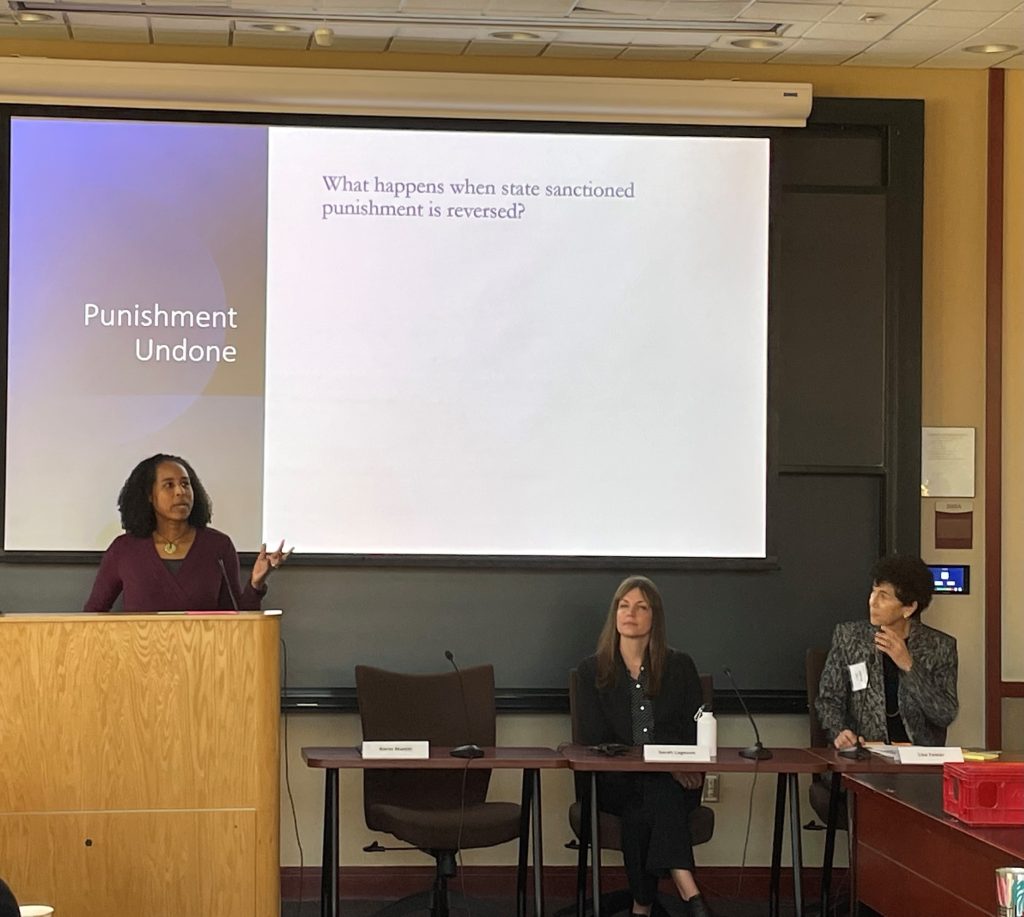The American Bar Foundation (ABF) has been awarded a grant renewal from The JPB Foundation in continued support of the ABF/JPB Foundation Access to Justice Scholars Program. This multiyear grant pledges financial support to the ABF over the next three years to ensure the program’s continued vitality and impact.
The JPB Foundation works to advance opportunity and justice in the U.S. by reducing poverty, sustaining and enriching the environment, and furthering breakthrough medical research. Since 2019, JPB has partnered with the ABF to fund the infrastructure of this new program designed to promote the next generation of access to justice scholars. Learn more about the program in the video below.
“The original grant has produced a remarkable cohort of successful, sophisticated, and committed access to justice scholars,” said ABF Interim Director Bryant Garth. “The new grant will continue that important work and deepen the ABF and Professor Sandefur’s leadership in building the scholarly and reform-oriented field of access to justice. We are very grateful to The JPB Foundation for allowing us to continue and deepen this work.”
Limited knowledge of and access to civil justice has prevented many Americans from addressing everyday problems through the law. People seldom recognize the legal aspects of their problems, and when they do, access to justice is often inaccessible for racial minorities and low-income individuals. Over a decade ago, ABF Faculty Fellow and Arizona State University Professor Rebecca Sandefur founded the ABF’s Access to Justice Research Initiative, which has produced empirically grounded research in access to justice and its role in reducing poverty.

The ABF/JPB Foundation Access to Justice Scholars Program was eventually established under Sandefur’s direction to build research infrastructure and attract the next generation of researchers in the field of anti-poverty and access to justice and disseminate their empirically grounded research to inspire actionable change. An advisory committee consisting of academics, practitioners, and opinion leaders provides direction about translating, disseminating, and ensuring actionability for the scholars’ research findings. This will result in the increased recognition of the access to justice field and its role in alleviating problems that plague systemically disenfranchised people and their communities.
“America’s access to justice crisis is a problem of enormous proportions that strikes at the heart of our democracy,” said Sandefur. “Its solution requires new energy and new ideas. The next group of scholars will join the first in bringing their talents to enrich their intellectual disciplines, and to transform the way we solve legal problems, practice law, and find justice.”
In the program’s first two sessions, scholars came from a diverse set of backgrounds to research a variety of topics within the realm of access to justice. Robin Bartram from the 2021-22 cohort released her book, Stacked Decks, which has received nation–wide press coverage since its release in 2021. Michele Statz, also from the 2021-22 cohort, just received an NSF CIVIC Grant for her project studying access to justice for rural and Indigenous Alaskans.
With the support of The JPB Foundation, the ABF will open applications for the 2023-24 Access to Justice Scholars Program in November of 2022. For more information about the program and the work of past scholars, visit the ABF/JPB Foundation Access to Justice Scholars Program webpage.
###
About the American Bar Foundation
The American Bar Foundation (ABF) is the world’s leading research institute for the empirical and interdisciplinary study of law. The ABF seeks to expand knowledge and advance justice through innovative, interdisciplinary, and rigorous empirical research on law, legal processes, and legal institutions. To further this mission the ABF will produce timely, cutting-edge research of the highest quality to inform and guide the legal profession, the academy, and society in the United States and internationally. The ABF’s primary funding is provided by the American Bar Endowment and the Fellows of The American Bar Foundation.
